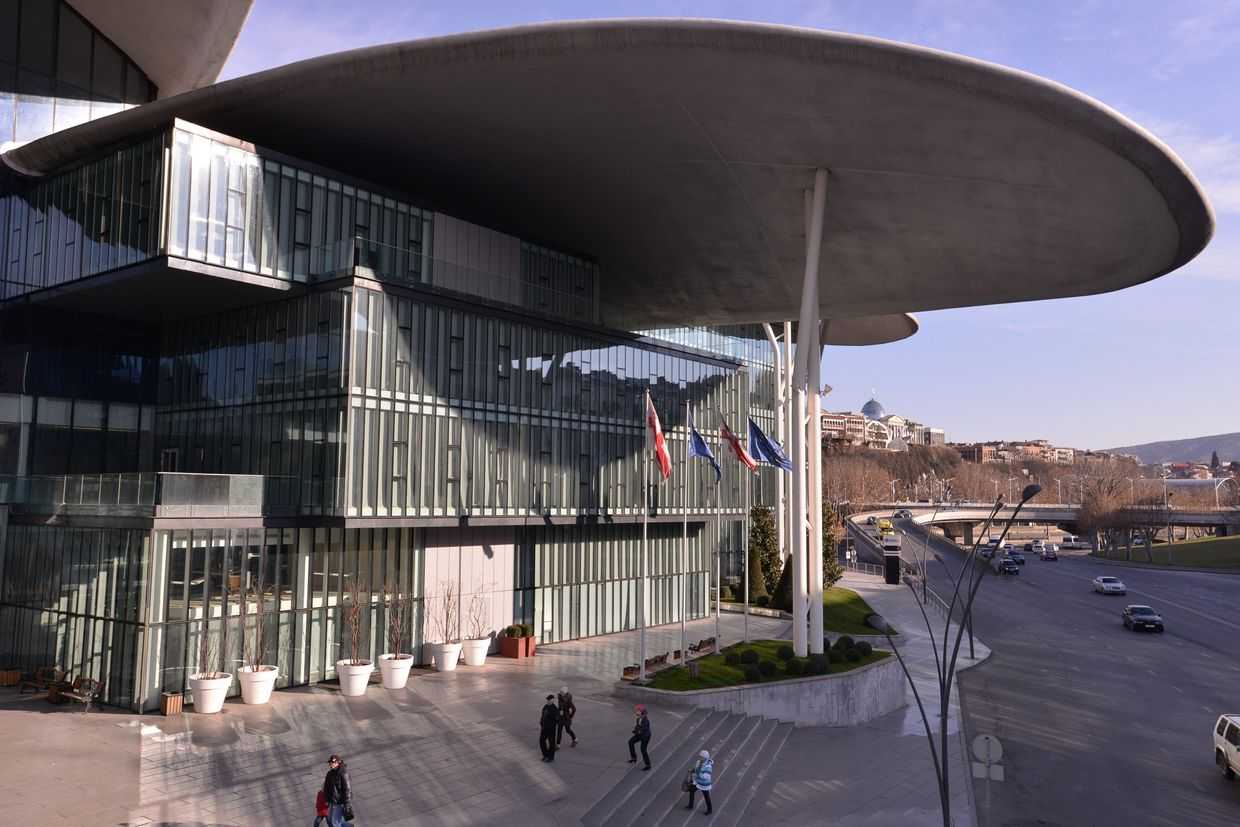
The open-air bazaars of Tbilisi began with the collapse of the Soviet Union in the early 1990s, as newly-independent Georgia experienced political and economic turmoil. Having lost their jobs and homes, newly-destitute citizens began selling their possessions as hyperinflation decimated pensions and savings.
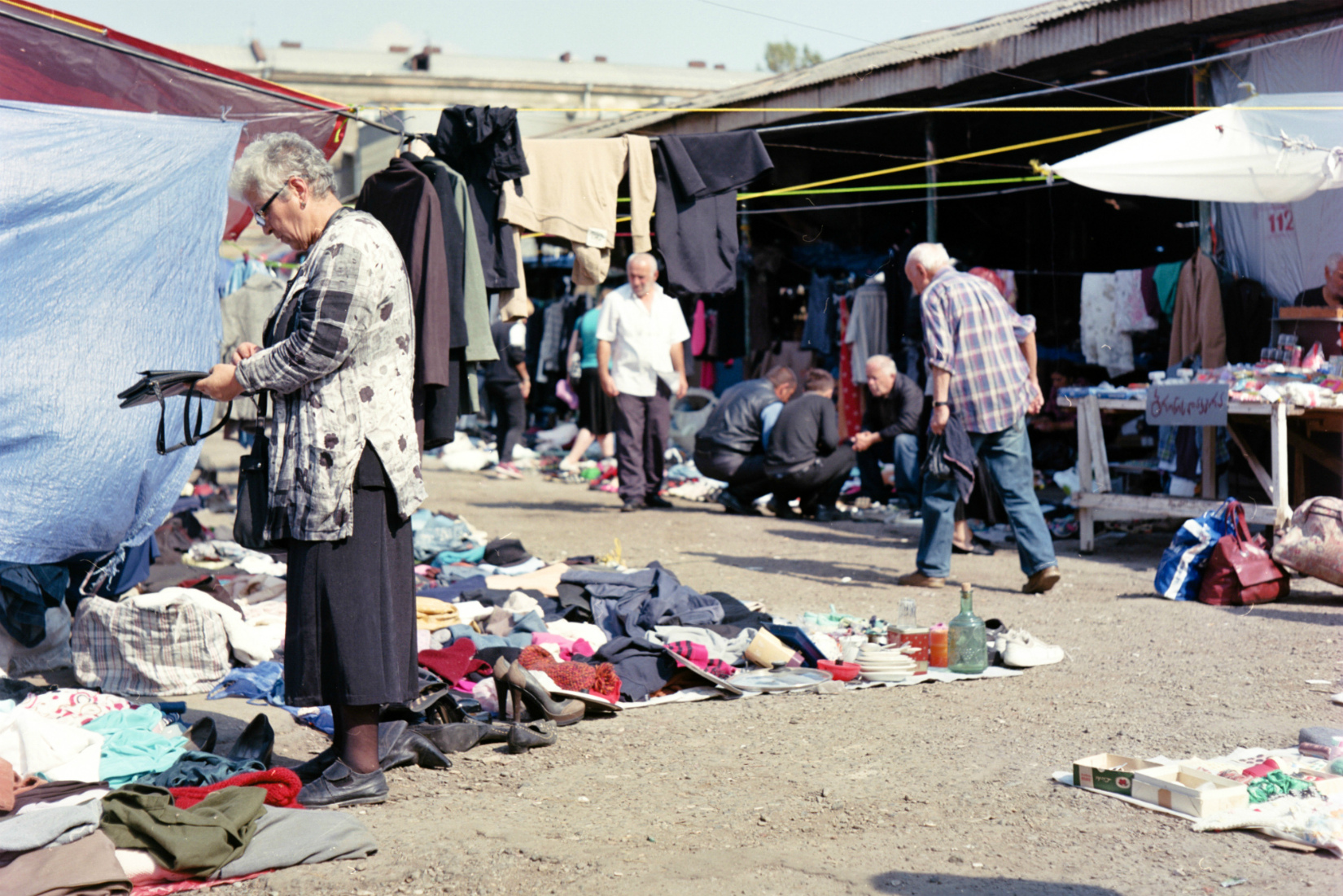
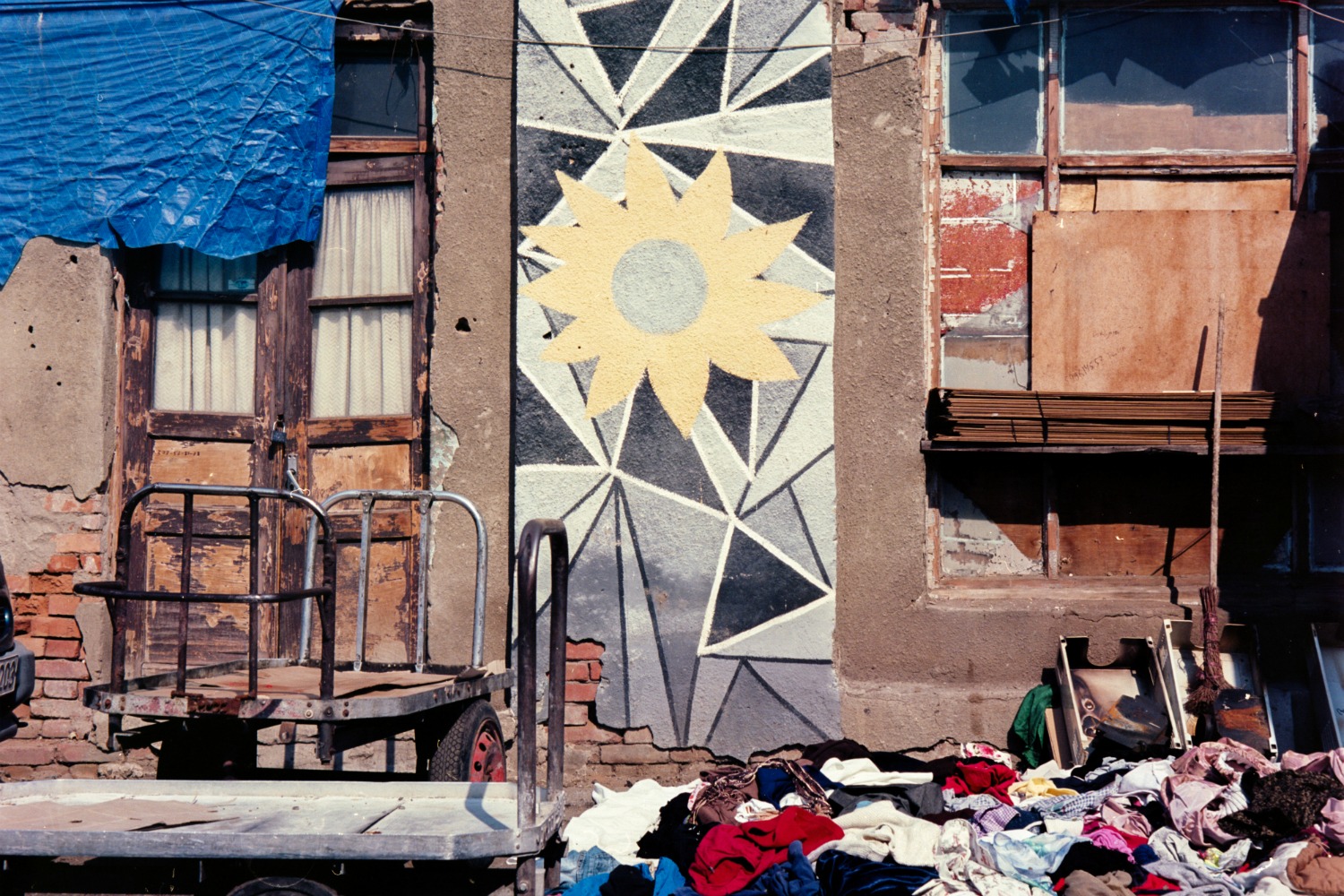
At the Navtlughi Bazaar in Samgori, different nationalities congregate with the same objectives. Georgians, Russians, Armenians and Azeris work side by side without regard for ethnic origin. Many vendors have been here for 20 years.
About a year ago, there were only a few sellers selling in the open-air market on Mevele Street. But since the management of the established market doubled the rent on a stall, many sellers decided to set up shop in the open air on the other side of the street. When the weather is bad, they are unable to work, but at least pay a rate of only ₾1 ($0.34) a day.
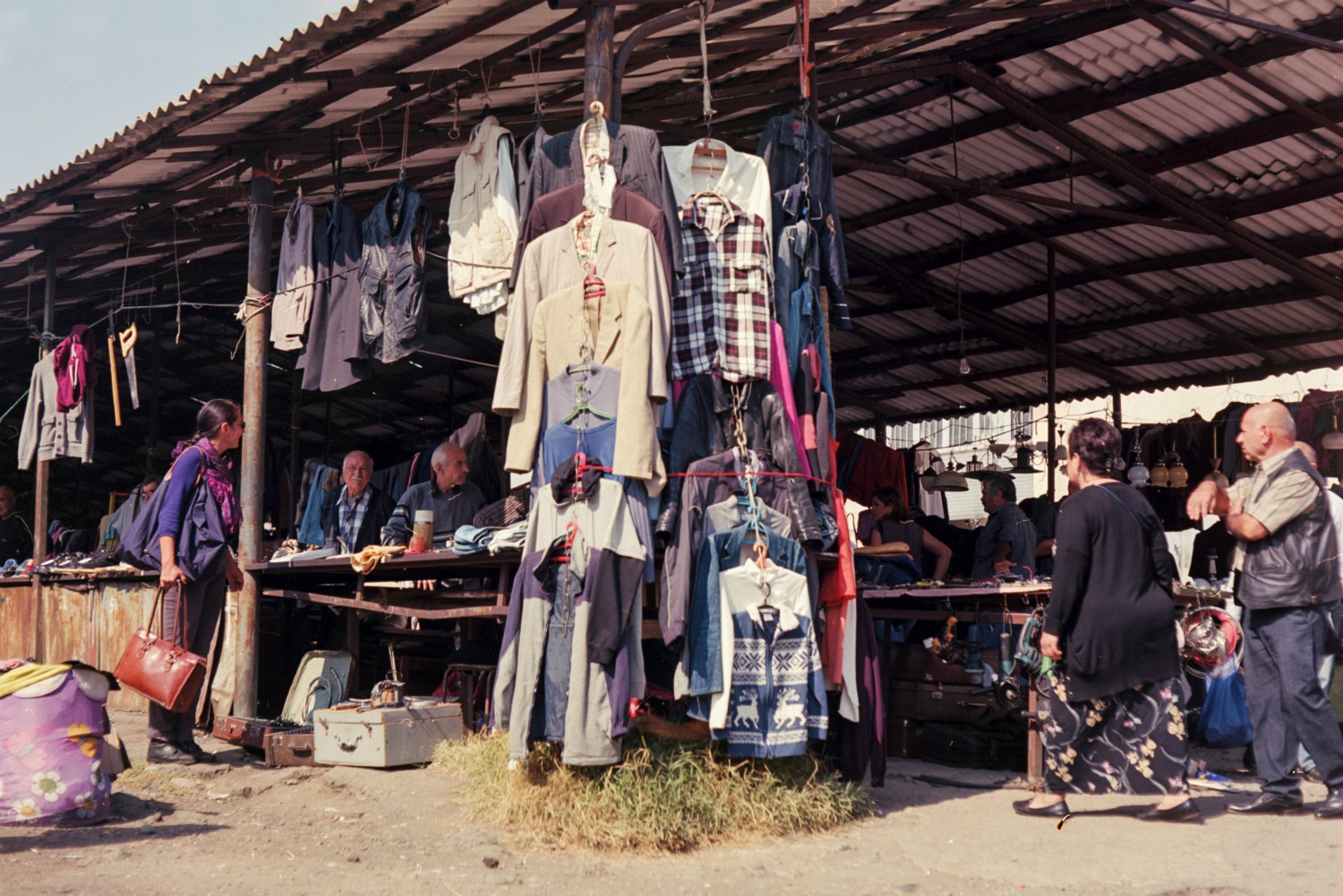
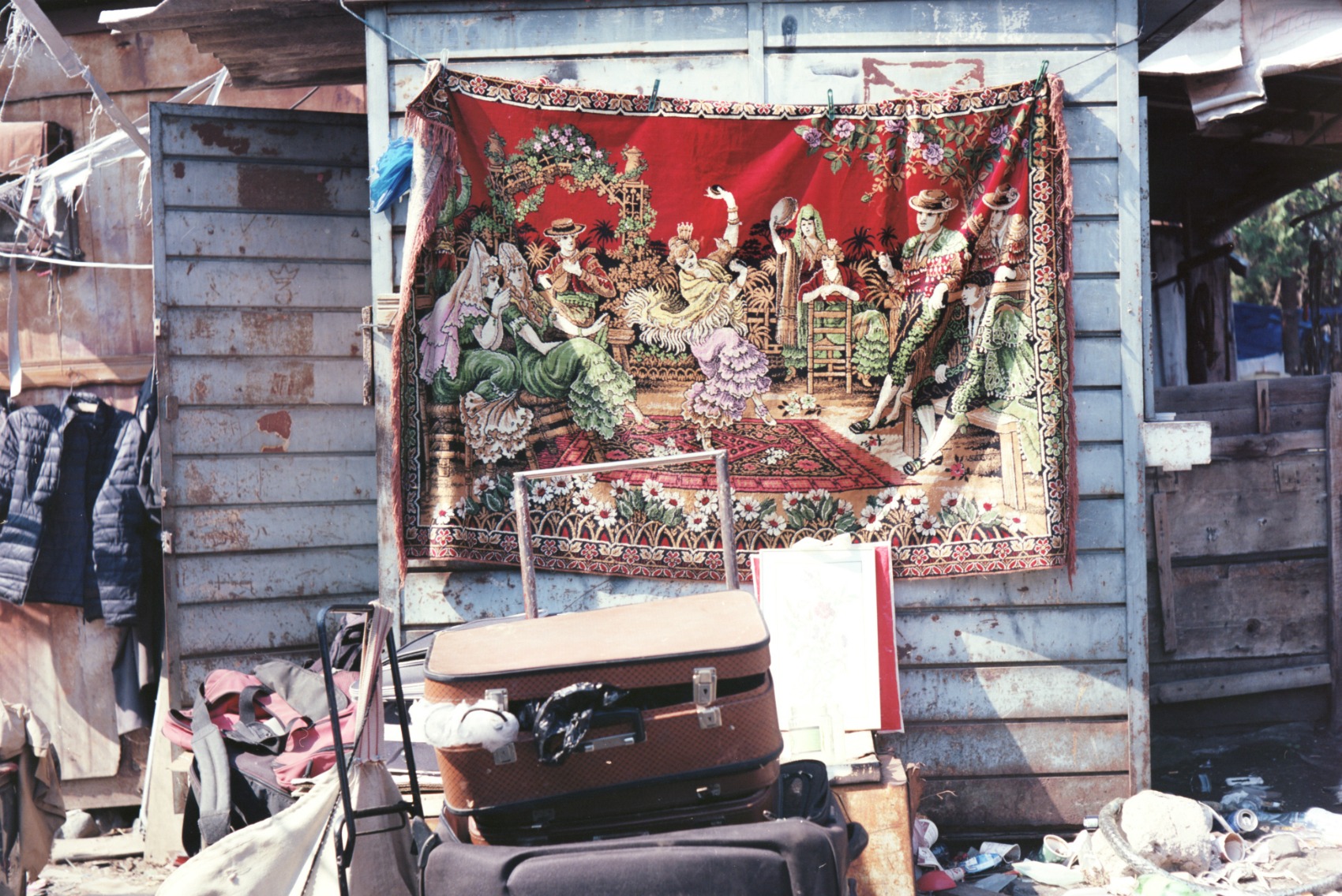
The oldest member of the bazaar is Nikolai Abazov, a Russian. Despite his 94 years, his memory is sharp.
‘I worked in a military aeroplane factory for 67 years, but my pension today is only ₾200 ($67). It is not enough to live on. I have four children and somehow I still help them because I am a grandfather of 11.’
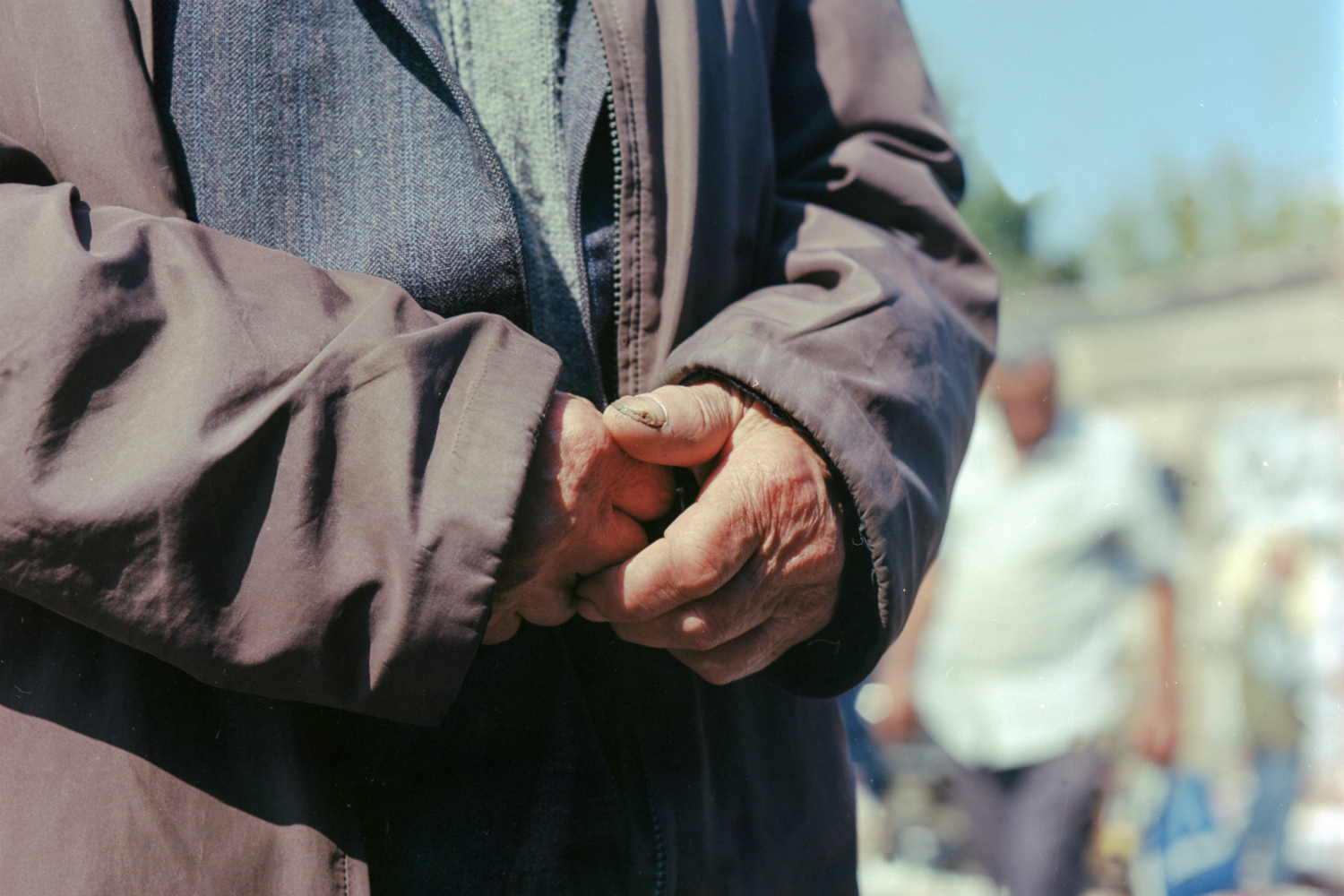
‘My oldest child didn’t manage to get a job because she knows only Russian. My grandchildren are always checking my pockets when I return home. There are some days when I don’t sell anything and I just pay for my daily rent.’
‘Anything you can find here costs a maximum ₾5 ($1.70) and sometimes I don’t have many things to sell. So the most I can make in a month from this place is ₾200 ($67).’





